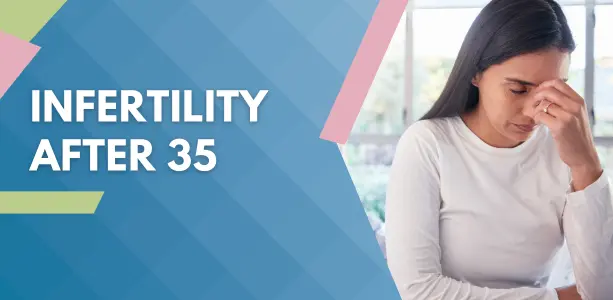Motherhood is a cherished dream for many women, a natural extension of their nurturing spirit. But for some, this journey can be challenging, especially as they age. The fertility specialists at Iris, Saraogi Hospital’s IVF Centre in Mumbai, understand how infertility can deeply impact people and their relationships. With an increasing number of women seeking guidance from IVF doctors to help in infertility after 35, this issue has become more prevalent.
Dr. Mohit Saraogi, a renowned infertility specialist in Mumbai, says:
“Women are born with a finite number of eggs, which decrease in quality over time. By age 35, the likelihood of chromosomal abnormalities in eggs increases, leading to reduced fertility. Many women find themselves struggling to achieve pregnancy, despite their best efforts, as they navigate the complexities of infertility later in life.”
Are you wondering if age is affecting your chances of conceiving? It might be time to consult a qualified fertility doctor for support and guidance.
Let’s dive into the crucial details every woman over 35 should know.
Impact of Age on Fertility for Women over 35

As women age, their fertility naturally declines, which can make conception more difficult. Globally, statistics indicate that about 33% of couples in which the woman is over 35 will face fertility issues. This is primarily due to a combination of factors that come with age:
- Decreased Egg Quality which can lead to difficulties in conceiving and a higher risk of miscarriage
- Lower Ovarian Reserve, which lowers the chances of successful conception
- Longer Time to Conceive due to significant decline in fertility after 35
- Increased Risk of Genetic Abnormalities, which can lead to conditions such as Down syndrome
- Hormonal Changescan impact the regularity of ovulation and the overall fertility of a woman
- Higher Chances of Complicationssuch as gestational diabetes and hypertension make conception and carrying a pregnancy to term more challenging.
Common Causes of Infertility After 35
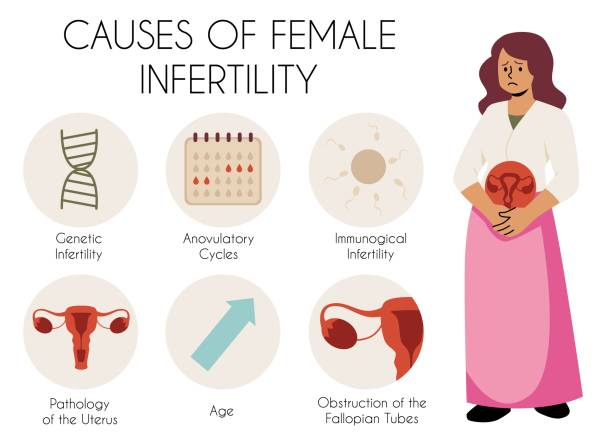
Infertility after 35 is often multifaceted, influenced by a combination of factors, including:
- Ovulatory Disorders like polycystic ovary syndrome (PCOS) which can disrupt normal ovulation
- Endometriosis, where the tissue similar to the uterine lining grows outside the uterus
- Tubal Factors, including blocked or damaged fallopian tubes, often a result of infections or previous surgeries, prevent the sperm from reaching the egg
- Uterine Fibroids, noncancerous growths in the uterus, which can interfere with the implantation of the fertilized egg
- Diminished Ovarian Reserve, which can lead to a lower chance of conception
- Lifestyle Factorslike stress, obesity, smoking, and alcohol consumption can further exacerbate infertility issues in older women
Dr. Saraogi, a prominent infertility specialist in Mumbai, adds:
“Male factors, such as low sperm count or motility, also contribute to challenges in conceiving. Male fertility typically begins to decline around the age of 40 to 45 as sperm quality diminishes. In such cases, approaches like IMSI and ICSI can help.”
Are you worried about factors affecting your fertility? Visit an experienced fertility specialist for an accurate evaluation and explore available options.
Overcoming Infertility after 35
 While age-related infertility can be challenging, there are several ways women can enhance their fertility health:
While age-related infertility can be challenging, there are several ways women can enhance their fertility health:
- Lifestyle Modifications such asmaintaining a healthy weight, balanced diet, and regular exercise
- Medical Interventions, including hormonal treatments, fertility drugs, and other medical interventions can support ovulation
- Stress Management, with yoga, meditation, and counseling, as high-stress levels can negatively impact fertility
- Regular Monitoringof ovarian reserve, hormonal levels, and reproductive health can help in timely interventions, ensuring better outcomes
Dr. Mohit Saraogi, a compassionate fertility specialist, notes:
“In our fast-paced world, women may choose to delay childbirth due to career and personal goals. For them, egg freezing at a younger age can preserve fertility and offer more options in the future. Meanwhile, women over 35 should seek advice from an experienced fertility specialist as soon as they decide to conceive, rather than waiting.”
Treatment Options for Infertility After 35
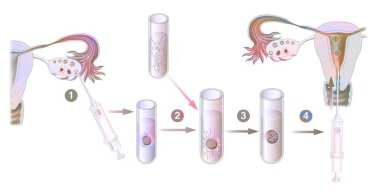
In Vitro Fertilization (IVF): IVF involves fertilizing eggs with sperm in a lab and transferring the resulting embryo to the uterus, offering a higher chance of pregnancy.
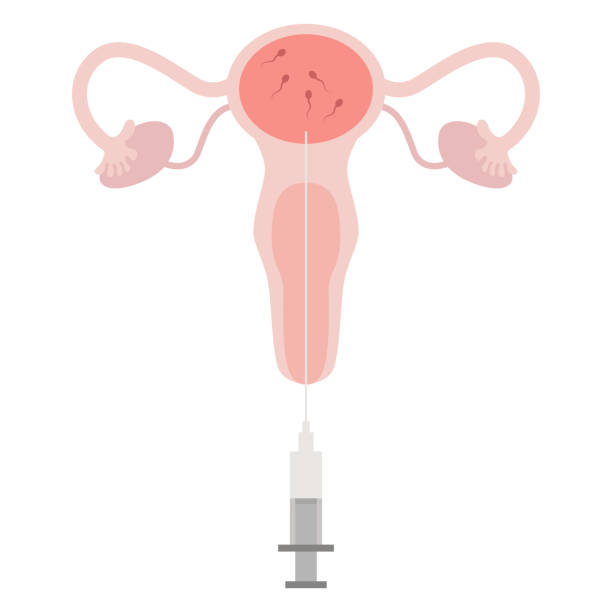
Intrauterine Insemination (IUI): IUI places washed sperm directly into the uterus during ovulation, increasing the chances of fertilization.
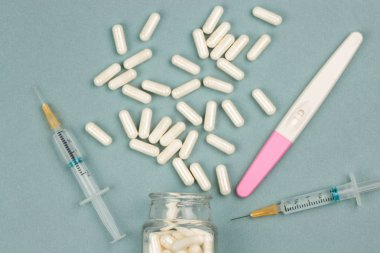
Ovulation Induction: Fertility drugs stimulate the ovaries to produce multiple eggs during a cycle.
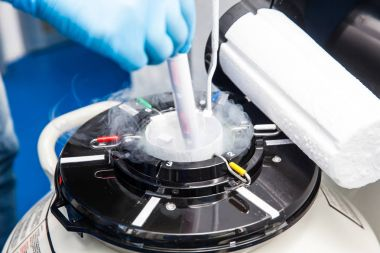
Frozen Embryo Transfer (FET): FET involves thawing and transferring previously frozen embryos into the uterus, allowing for pregnancy attempts later in life.
Donor Eggs or Sperm: Using donor eggs or sperm can be an option when there are issues with egg or sperm quality, offering an alternative path to pregnancy.
Do you wish to explore these treatment options? Consult a skilled fertility specialist who can tailor a plan that suits your needs.
Impact of Age on Fertility for Women over 35
 Navigating infertility can be emotionally taxing for both partners. Here are some ways couples can support each other:
Navigating infertility can be emotionally taxing for both partners. Here are some ways couples can support each other:
- Sharing feelings and concerns can help both partners feel understood and supported.
- Offering empathy, understanding, and encouragement can help in coping with the emotional toll of infertility.
- Attending medical consultations and treatments can strengthen the partnership and reduce the emotional burden.
- Professional counseling can help couples cope with the stress and emotional impact of infertility.
- Acknowledging and celebrating small milestones during the fertility journey can keep both partners motivated and positive.
- Keeping the relationship strong and maintaining intimacy can help counter the strain that infertility can place on a couple.
- Focusing on self-care and encouraging each other to engage in exercise, relaxation, and hobbies can help maintain emotional well-being.
Conclusion
Infertility after 35 is a challenge many women face, but it’s not insurmountable. With the proper care, management, and support, many women can still achieve their dream of parenthood.
As Dr. Mohit Saraogi advises, “While age-related infertility presents challenges, many women have successfully overcome infertility after 35. Supporting each other through the challenges of infertility is crucial. Patience, perseverance, and the right treatment approach can make all the difference.”
Are you ready to take the next step toward starting a family? Reach out to a dedicated fertility specialist who can guide you on your path to parenthood.
Remember, every journey to parenthood is unique, and with the right support, your story can have a beautiful beginning.
Let’s tackle some pressing concerns about conceiving after 35.
FAQ
What are the risks of pregnancy after 35?
Pregnancy after 35 carries a higher chance of complications like:
- gestational diabetes
- high blood pressure
- chromosomal abnormalities in the baby
- preterm birth
- need for a cesarean section
How can you naturally increase fertility after 35?
Focus on maintaining a healthy weight, eating a balanced diet rich in antioxidants, and managing stress through relaxation techniques. Regular exercise and avoiding smoking and excessive alcohol can also support reproductive health.
Is it more difficult for women to conceive after 35?
Yes, it can be more challenging for women to conceive after 35 due to a decrease in both the quantity and quality of eggs. However, with medical advancements and fertility treatments, many women over 35 can still successfully conceive.
How long should couples try to conceive naturally before seeking help after age 35?
Couples over 35 should seek fertility assistance after six months of trying to conceive naturally without success. Early intervention can help identify potential issues and provide appropriate treatment options.

